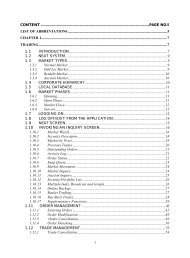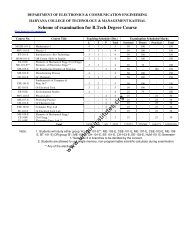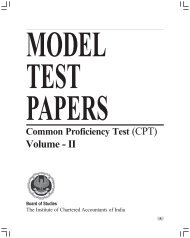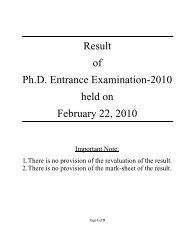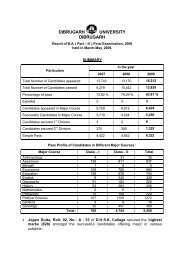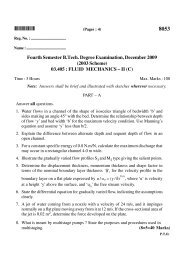Document file:///D|/Export1/www.netlibrary.com/nlreader/nlreader.dll ...
Document file:///D|/Export1/www.netlibrary.com/nlreader/nlreader.dll ...
Document file:///D|/Export1/www.netlibrary.com/nlreader/nlreader.dll ...
Create successful ePaper yourself
Turn your PDF publications into a flip-book with our unique Google optimized e-Paper software.
<strong>Document</strong><br />
Why? One hesitates to criticize an economist of Isard's eminence just as one hesitates to second-guess<br />
an Albert Hirschman. Yet it seems to me at least that Isard, for all his learning and acumen, failed to<br />
understand just what it was that had kept space out of the economic literature.<br />
Page 56<br />
Location and Space-Economy was in large part a work of synthesis, assembling von Thünen and<br />
Weber, Christaller and Lösch into a manageable package. Isard's principal original contribution was to<br />
reformulate the problem of location as a standard problem of substitution: firms, he argued, could be<br />
viewed as trading off transportation costs against production costs just as they make any other costminimizing<br />
or profit-maximizing decision-a perfectly correct observation. But Isard's conclusion from<br />
this observation was that one could therefore simply view location as another choice variable in a<br />
general equilibrium <strong>com</strong>petitive model, of the kind that was <strong>com</strong>ing to dominate economic analysis.<br />
And this was simply wrong: to make any sense of the various approaches to location that he surveyed,<br />
one must take account of increasing returns and hence of imperfect <strong>com</strong>petition. Isard never actually<br />
presented an example of a general locational equilibrium; this was no accident, because neither he nor<br />
anyone else at that time knew how to do so.<br />
In effect, Isard was saying to economists, ''Look! You can deal with space using the tools you already<br />
have!" But they couldn't and so his project was doomed to failure.<br />
Luckily for Isard and for the world, that was not the end of the story. The half-worked-out spatial<br />
models he provided made almost no dent in economic theory, but they were undeniably useful for a<br />
variety of practical purposes: a regional planner trying to decide where to build roads or ports may be<br />
willing to settle for a set of schematic or suggestive<br />
<strong>file</strong>:///<strong>D|</strong>/Export2/<strong>www</strong>.<strong>netlibrary</strong>.<strong>com</strong>/<strong>nlreader</strong>/<strong>nlreader</strong>.<strong>dll</strong>@bookid=409&<strong>file</strong>name=page_56.html [4/18/2007 10:30:21 AM]





